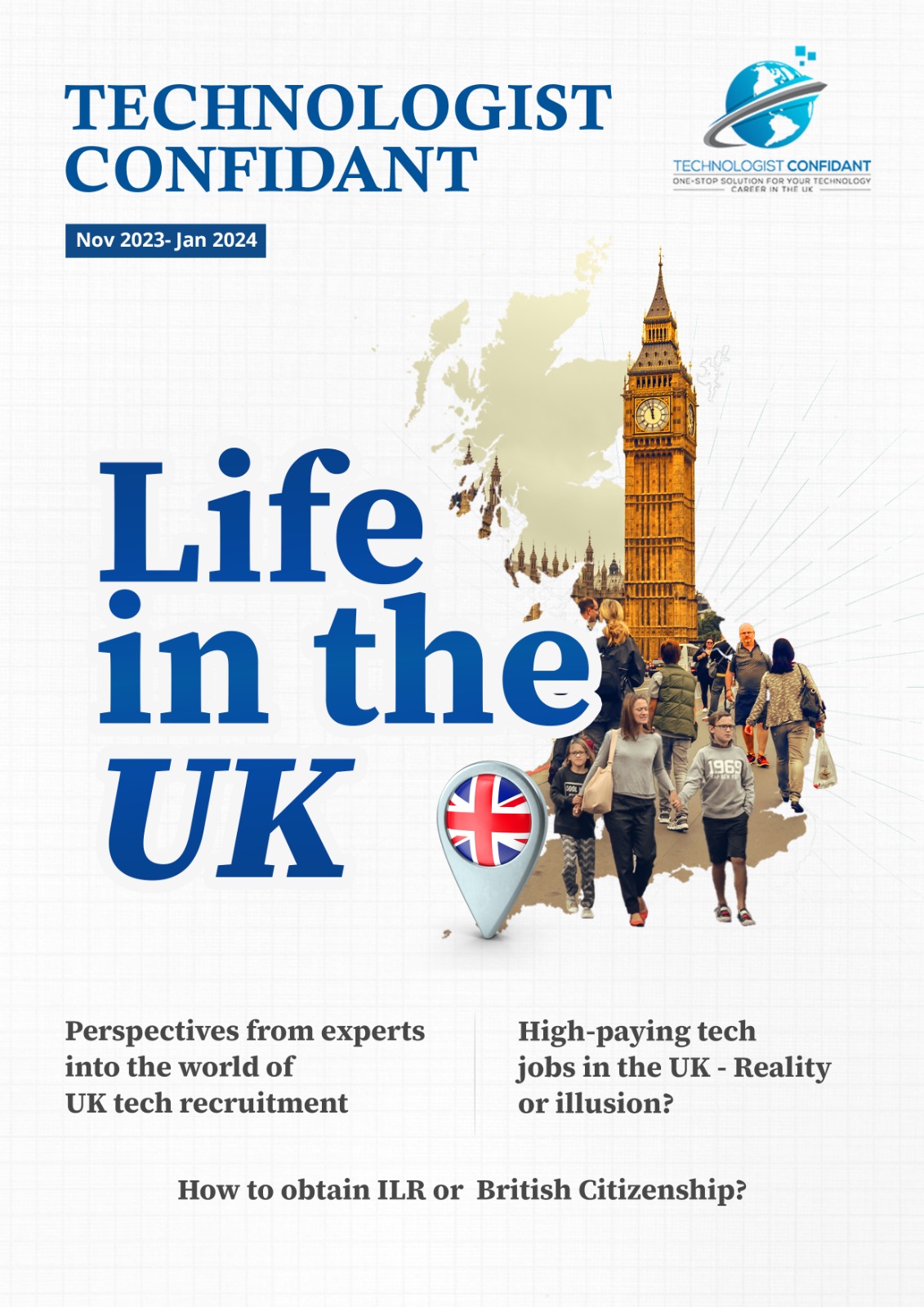Artificial Intelligence (AI) has emerged as a transformative force across various industries, revolutionising the way we live and work. In the United Kingdom, the AI sector has been growing at an unprecedented pace, offering a plethora of exciting career opportunities for individuals with the right skills and aspirations. If you're interested in pursuing a career in AI in the UK, this comprehensive guide will provide you with the information you need to get started and thrive in this dynamic field.
Understanding AI: What Is It?
Before embarking on an AI career journey, it's essential to have a solid understanding of what AI is and what it entails. AI refers to the simulation of human intelligence in machines, enabling them to perform tasks that typically require human intelligence, such as problem-solving, learning, and decision-making. AI encompasses various subfields, including machine learning, deep learning, natural language processing (NLP), computer vision, and more.
Demand for AI skills in the UK
According to a report from the UK Parliament, the share of online job postings seeking AI skills has surged, from a modest 0.3% in 2012 to a significant 1% of all UK job advertisements in 2021. This impressive trajectory is poised to continue, as the World Economic Forum forecasts that AI and machine learning specialists will be among the fastest-growing job categories worldwide between 2023 and 2027.
Recent data from Indeed, a prominent job search platform, further underscores the flourishing demand for AI expertise. In just the first quarter of 2023, job postings for AI roles in the UK surged by a remarkable 48% compared to the same period in the previous year. This substantial increase highlights the urgency with which businesses and organisations are seeking AI professionals to leverage the transformative potential of AI technologies.
In a global context, the World Economic Forum positions AI and machine learning specialists in the top 10 list of jobs expected to experience the swiftest growth between 2023 and 2027. This recognition on the global stage solidifies the significance of AI skills, not only in the UK but also worldwide, making it an incredibly promising field for those looking to forge a career at the forefront of technological advancement and innovation.
Educational Pathways
To establish a career in AI, you need a strong educational foundation. The following educational pathways are commonly pursued by AI professionals in the UK:
a. Undergraduate Degrees: Consider enrolling in a bachelor's degree program in computer science, data science, mathematics, or a related field. These programs provide fundamental knowledge in programming, algorithms, and data analysis, which are essential for AI.
b. Master's Degrees: Pursuing a master's degree in AI, machine learning, or data science can provide in-depth knowledge and hands-on experience. Many UK universities offer specialised AI programs.
c. Online Courses: There are numerous online platforms offering AI courses and certifications. Platforms like Coursera, edX, and Udacity provide flexible options to enhance your AI skills.
d. Self-Study: If you prefer a more independent approach, you can learn AI through self-study. Utilise online resources, textbooks, and open-source AI libraries to build your knowledge.
Specialisations within AI
a. Machine Learning Engineer:
Machine Learning Engineers focus on creating and deploying machine learning models. They develop algorithms that allow machines to learn from and make predictions or decisions based on data. Their work involves data preprocessing, model selection, training, and optimization. Machine learning engineers are crucial in industries such as finance, healthcare, and e-commerce, where predictive modelling and data-driven decision-making are paramount.
b. Data Scientist:
Data Scientists are responsible for collecting, cleaning, and analysing large datasets to extract valuable insights. They use statistical techniques and data visualisation tools to identify trends and patterns, enabling organisations to make data-driven decisions. Data Scientists are in high demand across various industries, including marketing, healthcare, and finance, where data analysis drives strategy and innovation.
c. Natural Language Processing (NLP) Specialist:
NLP Specialists work with text and language data to develop applications that can understand, interpret, and generate human language. They design chatbots, language translation systems, sentiment analysis tools, and more. NLP is critical in industries like customer support, content generation, and language processing applications in fields like healthcare and legal services.
d. Computer Vision Engineer:
Computer Vision Engineers focus on teaching machines to understand and interpret visual data, such as images and videos. They design and implement algorithms for object detection, image segmentation, and image recognition. This specialisation is crucial for applications like facial recognition technology, autonomous vehicles, and quality control in manufacturing.
e. AI Ethics and Governance:
As AI technologies advance, ethical concerns and regulatory challenges arise. AI Ethics and Governance specialists work on ensuring that AI systems are developed and deployed responsibly. They address issues related to bias in algorithms, data privacy, transparency, and compliance with ethical guidelines and legal regulations. This role is becoming increasingly vital in industries using AI, as responsible AI practices are essential for maintaining public trust and avoiding legal and ethical pitfalls.
Each of these specialisations plays a crucial role in the AI ecosystem, and professionals often work together on interdisciplinary projects to create comprehensive AI solutions. The choice of specialisation depends on your interests, career goals, and the impact you wish to make in the world of AI. Whether you're passionate about developing cutting-edge AI models, solving complex real-world problems, or ensuring that AI is used ethically, there's a specialisation in AI that's right for you in the UK.
Building a Portfolio
Practical experience is crucial in the AI field. Create a portfolio of projects that showcase your skills and expertise. You can participate in Kaggle competitions, work on personal projects, or collaborate with open-source AI projects. A strong portfolio will make you more attractive to potential employers.
Networking and Communities
Join AI communities and attend conferences, workshops, and meetups in the UK. Networking can help you connect with professionals in the field, gain insights, and discover job opportunities. Some notable AI communities in the UK include the AI London Meetup and the Alan Turing Institute.
Job Market and Salaries
The AI job market in the UK is robust and competitive. Major cities like London, Manchester, and Edinburgh have thriving AI ecosystems. Salaries in the field can vary significantly based on experience and specialization. Entry-level roles may start at £30,000-£40,000 per annum, while experienced professionals can earn six-figure salaries.
Top UK Employers in AI
In the UK, leading employers in AI include Google AI, DeepMind, Microsoft Research, Facebook AI, and Amazon AI. These renowned organizations are hubs of innovation and research, driving advancements in artificial intelligence. They offer exciting opportunities for professionals to work on groundbreaking projects in fields such as natural language processing, computer vision, and machine learning. Being part of these top employers allows individuals to contribute to the cutting edge of AI technology and its diverse applications, making a significant impact on the AI landscape in the UK and worldwide.
Continuous Learning
AI is a rapidly evolving field, so continuous learning is essential to stay current. Engage in online courses, attend conferences, and read research papers to keep up with the latest developments in AI.
Conclusion
Embarking on an AI career in the United Kingdom offers exciting prospects in a field that continues to shape the future. By acquiring the right education, specialising in your area of interest, building a strong portfolio, and networking within the AI community, you can position yourself for a successful and fulfilling career in AI. Stay curious, stay committed, and you'll be well on your way to making significant contributions to the world of artificial intelligence in the UK.






